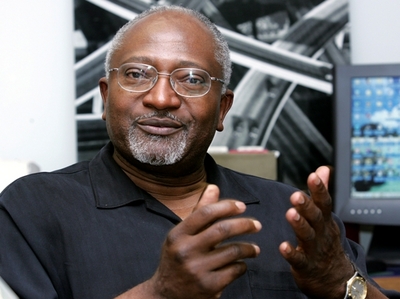Dillard University's Deep South Center for Environmental Justice in collaboration with the Texas Southern University Barbara Jordan-Mickey Leland School of Public Affairs will host the Third Annual HBCU Student Climate Change Conference March 26-29 in New Orleans, Louisiana. The conference is designed to strengthen the partnerships between students and faculty at historically black colleges and universities (HBCUs) and organization leaders from climate-impacted communities. It is a response to the call for HBCUs to step up and lead on climate justice since many of the schools are located in communities that are on the frontline of climate assault. The Third Annual HBCU Student Climate Change Conference theme is "Bridging the Gap between Theory and Experience."
More than 80 percent of the 104 HBCUs are located in the Southern United States. Forty-three HBCUs are located in the Gulf Coast States: TX (9), LA (7), AL (15), MS (8), and FL (4)--in cities like New Orleans and Houston that are at ground zero in the fight for climate justice. Nearly a decade ago, flooding from Hurricane Katrina in New Orleans drowned that city's three HBCUs (Dillard University, Xavier University and Southern University at New Orleans) in 2005. Three years later, Hurricane Ike caused major property damage to Texas Southern University in Houston--the nation's fourth largest HBCU.
Since the vast majority of HBCUs are located in the climate-vulnerable South, a region of the country known for intense hurricanes, drought, heatwaves, flooding, and other climate-sensitive hazards, conference participants will work on building a southern initiative on climate justice. Climate-related disasters in the southern U.S. have outnumbered those in other regions of the country annually in both scale and magnitude by a ratio of almost 4:1 during the past decade. The Southeast U.S. for the period 1980-2012 had more billion-dollar disasters than the rest of the country combined.
And because of the racial climate gap, in April 2013, a consortium of HBCUs, led by Dillard University and Texas Southern University, convened the First Annual HBCU Student Climate Change Conference in New Orleans. That same year, Texas Southern University with support from the W.K. Kellogg Foundation launched the Climate Education Community University Partnership (CECUP), a collaboration of HBCUs and community based organizations in ten Gulf Coast and South Atlantic states, the District of Columbia and the Virgin Island. The mission of the CECUP is to train the next generation of leaders, address climate vulnerability and build community resilience. In April 2014, the consortium convened the Second Annual HBCU Student Climate Change Conference in New Orleans.
Conference conveners this year will conduct workshops, teach-ins and hands-on training in preparation for an HBCU-led delegation to participate in the United Nations Conference of the Parties (COP21) Paris climate summit set for November and December. It is important that youth, students and leaders from climate-vulnerable communities participate in conferences and policy summits and speak for themselves.
The New Orleans conference will be webcast by Texas Southern University via UStream. Conference location: Dillard University, Professional School Building 2601 Gentilly Boulevard, New Orleans, LA 70122, USA. For more information, click HERE.
Selected Links on African Americans and Climate Change
Yes, Black People Talk About Climate Change (Grist, Mock 2014).
African American Physicians Already Seeing Health Impacts of Climate Change (National Medical Association, Sarfaty et al. 2014).
Climate Resilience in Vulnerable Communities: Strengthening the Experience of Communities of Color and Low-Income Communities in the Face of Climate Change (Green for All, 2014).
Why HBCUs Must Lead on Climate Justice (DrRobertBullard.com, Bullard 2014).
Why We Need A Southern Initiative on Climate Justice (OpEdNews, Bullard 2014).
Welcome to West Port Arthur, Texas, Ground Zero in the Fight for Climate Justice (The Nation, Stephenson 2014).
People of Color Are Already Getting Hit Hard by Climate Change (The Nation, Hsieh 2014).
Minorities More Likely to Live in Urban Heat Islands, Study Finds (Los Angeles Time, Barbosa 2014).
Are African Americans Hurt More by Global Warming? (The Skanner Newspaper, Loving 2013).
(Note: You can view every article as one long page if you sign up as an Advocate Member, or higher).





